The Ortega-Murillo regime has rejected the scrutiny of international organizations responsible for the protection of human rights. They pretend to cover up the systematic and massive violations they have conducted, forgetting that human dignity is at the center of international law, and that nations have a collective responsibility to ensure respect for human rights and to ensure that those who commit crimes against humanity do not go unpunished.
To evade responsibility, they have expelled the Inter-American Commission on Human Rights (IACHR) and the Office of the United Nations High Commissioner for Human Rights (OHCHR) from the country. They refuse to accept visits and to cooperate with experts from these institutions and the UN Commission Against Torture. In addition, they have withdrawn from the Organization of American States (OAS) to distance themselves from their obligations to this entity.
To guarantee impunity for the perpetrators, they receive help from their accomplices to the most heinous crimes, and have been progressively disregarding the recommendations, resolutions and sentences from the competent international human rights bodies for many years. This has prevented them from providing protection and allowed them to deny access to justice for the victims.
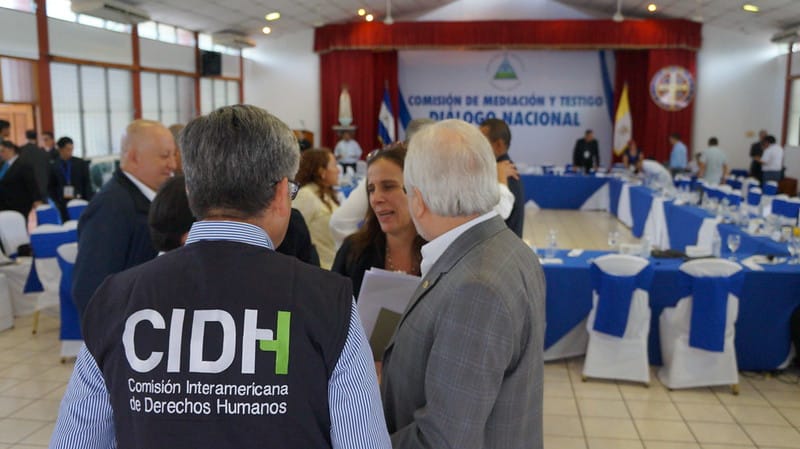
These efforts contrast with the commitment not to let serious violations of human rights and international humanitarian law go unpunished, which derives from the principle of legal solidarity among States and is exercised through the obligation to cooperate with the prevention and punishment of these crimes through universal jurisdiction, which allows prosecution regardless of the place where they were committed or the nationality of the perpetrators or victims.
To consolidate absolute impunity, the Ortega-Murillo regime has built an internal system with external effects, which by has provided them with the following countermeasures that prevent the application of justice:
1. They approved a broad and unconditional amnesty law.
2. They ended the independence of the Judiciary and turned it into one more tool of repression without impartial and independent judges.
3. To avoid the application of international justice, they refuse to ratify the Rome Statute that created the International Criminal Court (ICC).
4. To avoid trials abroad based on universal justice, they constitutionally prohibited the extradition of nationals.
5. In order to prevent the victims’ complaints from advancing, they ensured the monopoly of criminal action and the control and total submission of the Police.
6. As the heads of State are the main responsible parties, they exercise absolute control over the institutions and ensure that no official fulfills his or her obligation to investigate or prosecute.
7. They reformed the Constitution to guarantee indefinite reelection and family succession and turned the permanence in power into the main shield against justice.
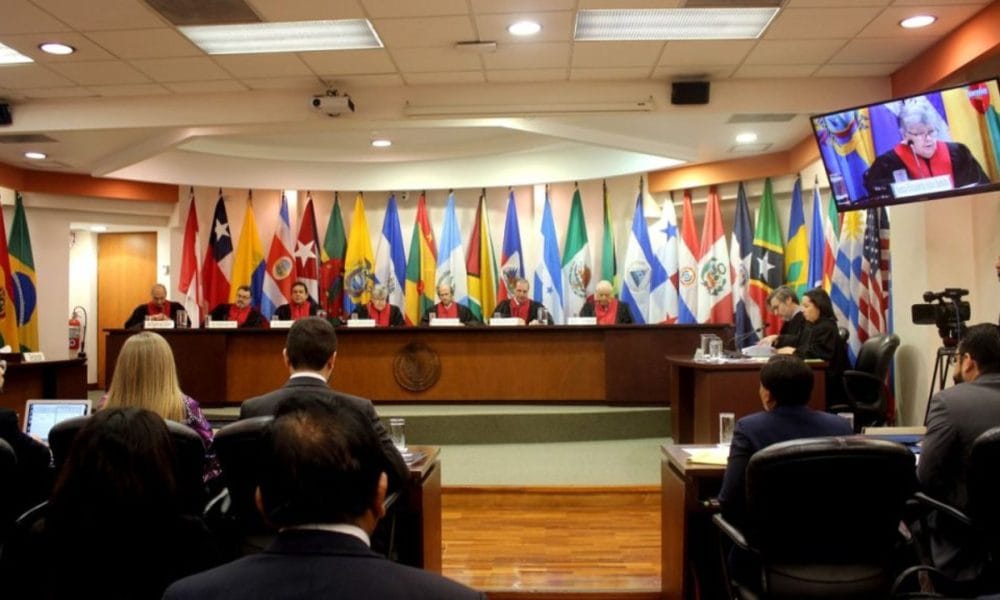
In their purpose of violating their international obligations, in a conscious and defiant manner and acting as an outlaw State, the Ortega-Murillo regime are not satisfied with assuring their impunity and that of their subordinates, they also turned the country into a refuge for foreigners perpetrators of terrorism such as the Italian Alessio Casimirri and for officials from Guatemala, El Salvador, Honduras, Panama and Asia, accused of corruption, transforming Nicaragua into a paradise of impunity for their own and others. These individuals were granted asylum and to protect them from extradition they were granted nationality, thus violating the United Nations Convention Against Corruption, which obliges countries to collaborate in the fight against this type of crime.
Since the Nuremberg trials, the international community has held the position that the failure to prosecute serious crimes is considered as bad or even worse than the crime itself, since impunity becomes an incentive to continue committing crimes that offend the victims and humanity.
The Nicaraguan Democratic Concertation (CDN) asks the international community to keep in mind that the fight against impunity requires a decisive and coordinated response that allows for the prosecution and punishment of those responsible, even more so when they seek self-protection in their own nation. When a country refuses to investigate and punish serious crimes against international law, it is the responsibility of the rest of the States, as part of their international obligations, to allow victims access to their courts through universal jurisdiction.
A narrow and short-sighted vision of reality
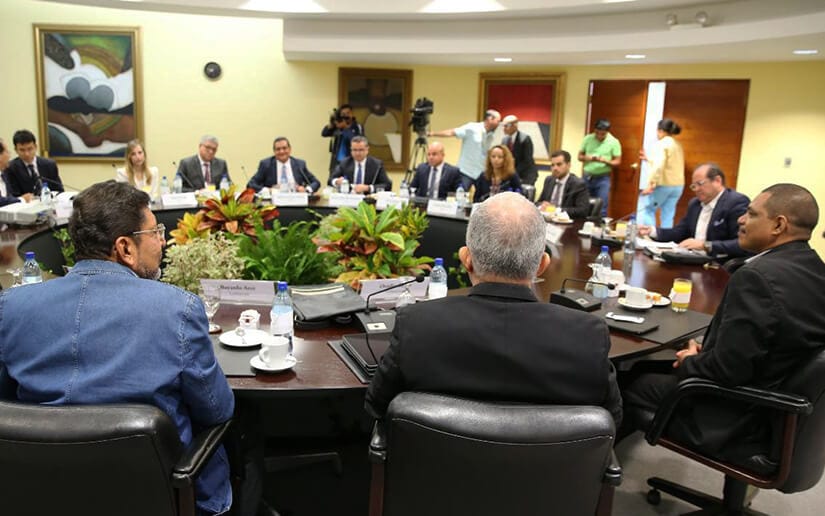
A few days ago, the Central American Bank for Economic Integration (CABEI) approved a new loan for the Ortega Murillo regime and the S&P Global Ratings agency raised Nicaragua’s debt rating from B to B+ with Stable Outlook. In addition, we are on the verge of the International Monetary Fund (IMF) review of Article IV before the end of 2024.
It is worth noting that the final report of Article IV of 2023 presented in January of this year by the team led by Alina Carare, was like a modern version of the story Alice in Wonderland, which as in the famous novel of the genre of Nonsense by Charles Lutwidge, presents us with a distant and one might even say fanciful vision of the Nicaraguan reality.
It was unfortunate that the statement stated that “there could be positive surprises” because real GDP growth could be higher than estimated due to, among other reasons, “stronger than expected inflows of remittances”.
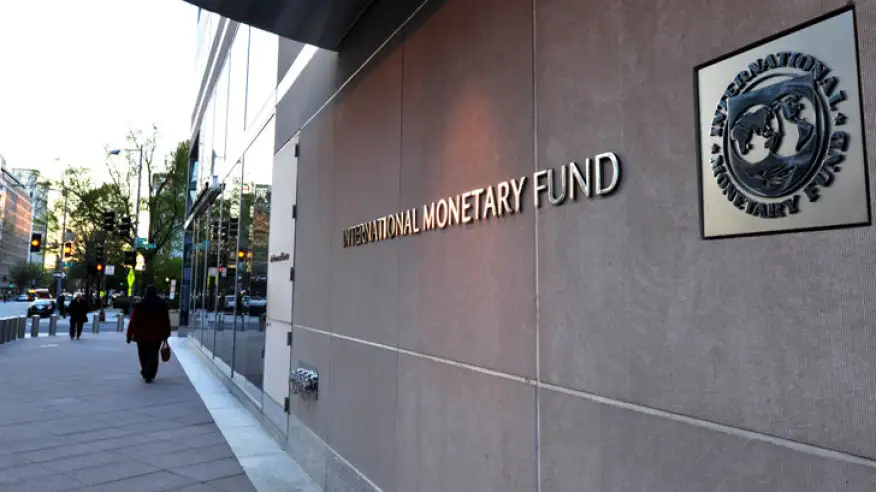
The growth of remittances is based on the sacrifice of families and not on the good performance of the regime. In six years more than 800 thousand Nicaraguans have left, equivalent to approximately 12 percent of the population. Between 2010 and 2017 around 47 thousand Nicaraguans migrated, so the total that migrated since 2018 is 18 times greater than the previous seven years. In fact, in the last six years 40 percent more of the population left than in the entire history of the country.
How can economic growth be celebrated at the cost of greater pain for families who have to separate? How can this be sold in a positive way and hide the demolition of the rule of law? Why do the IMF, CABEI or the rating agencies ignore this reality?
The members of the IMF mission know that, if the flow of remittances had remained at the pre-crisis level of 2018, the economic growth figures would be negative. So they must be responsible in the way they present the information.

They also know the other side of the coin that their reports do not reflect. They know that contrary to what happens with macroeconomics, democracy, rule of law, religious freedom and freedom of the press, have deteriorated so much that they keep Nicaragua with the worst indicators at a global level.
For example, the Freedom in the World 2024 report presented by Freedom House, which summarizes the main findings of 2023 in terms of political rights and civil liberties, shows that Nicaragua was one of the 17 countries with the greatest deterioration in these issues, and that in the last ten years it was the country with the greatest setback in the world in political rights and civil liberties, and because of this deterioration, along with Venezuela and Cuba, they are rated as the three countries without freedom in Latin America and the Caribbean.
The World Justice Project’s (WJP) Rule of Law Index or WJP Index that measures the practical degree of the rule of law and its foundational importance in the evolution of countries, says that since 2017 in Nicaragua it has deteriorated year after year. That is why it ranks 137th in a list of 142 countries to which they measure eight aspects of the rule of law. One of those measurements is the limitation of government powers and in that Nicaragua ranks 141 out of 142 and in civil justice it ranks 140 out of 142 countries.
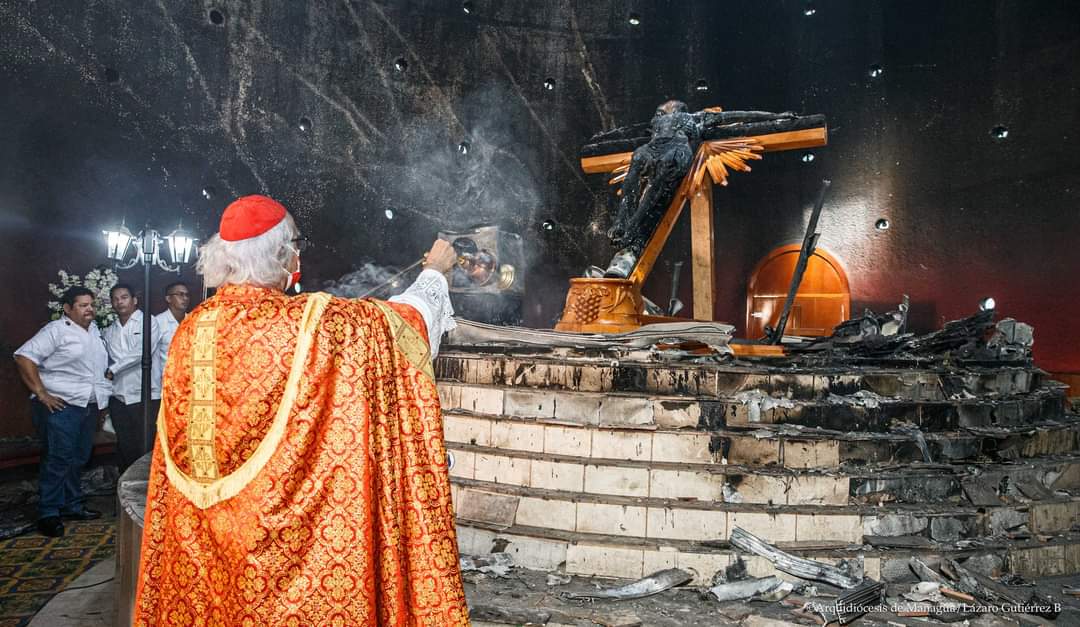
In terms of religious freedom, recently the organization Aid to the Church in Need (ACN), presented its report: The Persecution and Oppression of Christians in the World 2022-2024, in which Nicaragua entered the list of 18 countries where religious and believers suffer due to state authoritarianism and extremist attacks.
The recent World Press Freedom Index 2024 report prepared by Reporters Without Borders (RSF), ranked Nicaragua 163rd out of 180 countries. In 2017, prior to the onset of the social crisis, Nicaragua ranked 92nd out of 180 countries.
All of these and other indicators have prompted the Nicaraguan Democratic Concertation (CDN) to raise its voice to say enough is enough. It is time for the International Financial Institutions (IFIs) and the risk rating agencies to stop reflecting a limited and short-sighted vision of the Nicaraguan reality and to assume their commitment to democracy and human rights, because only then can we speak of a future with real pleasant surprises and stable prospects.
